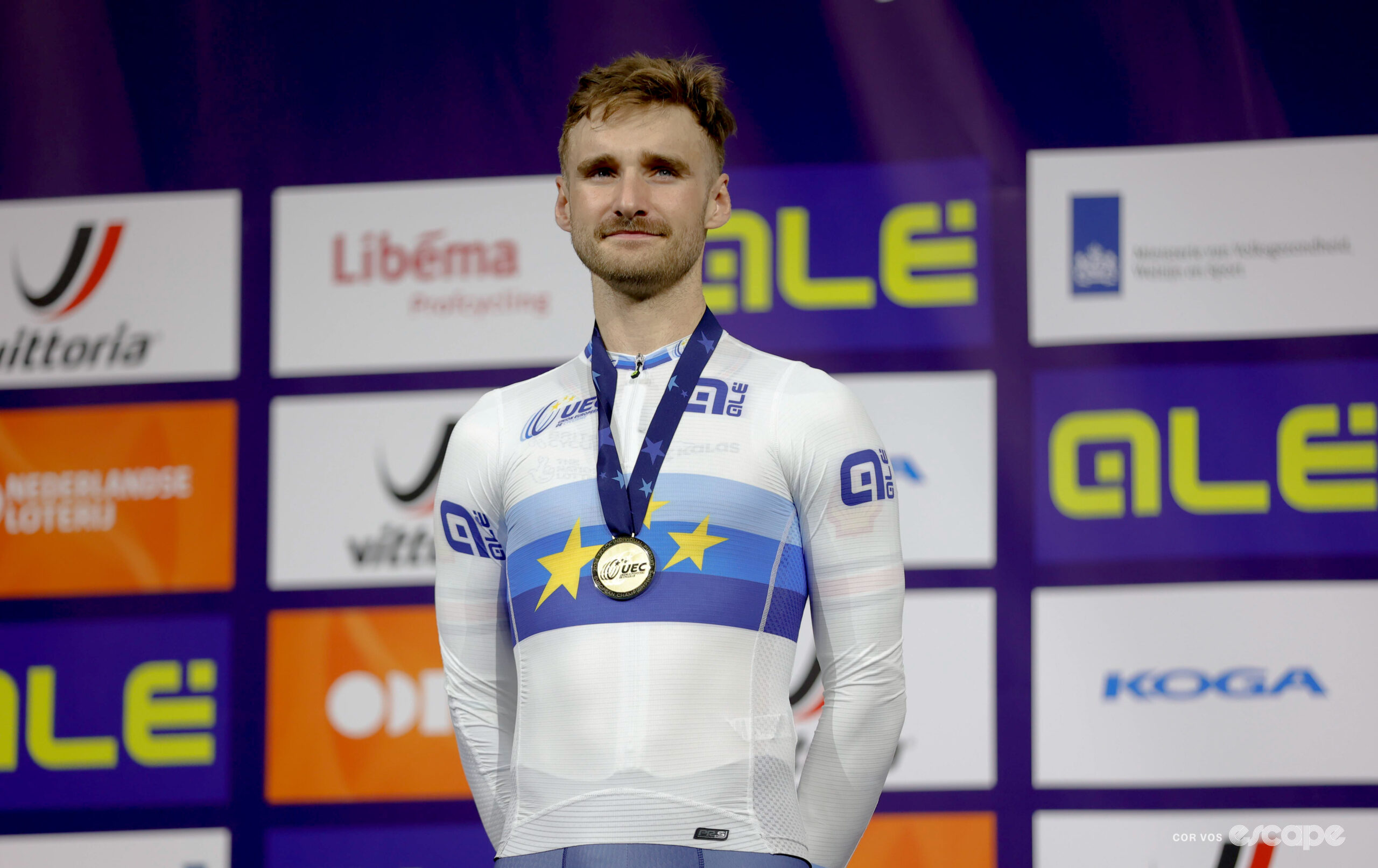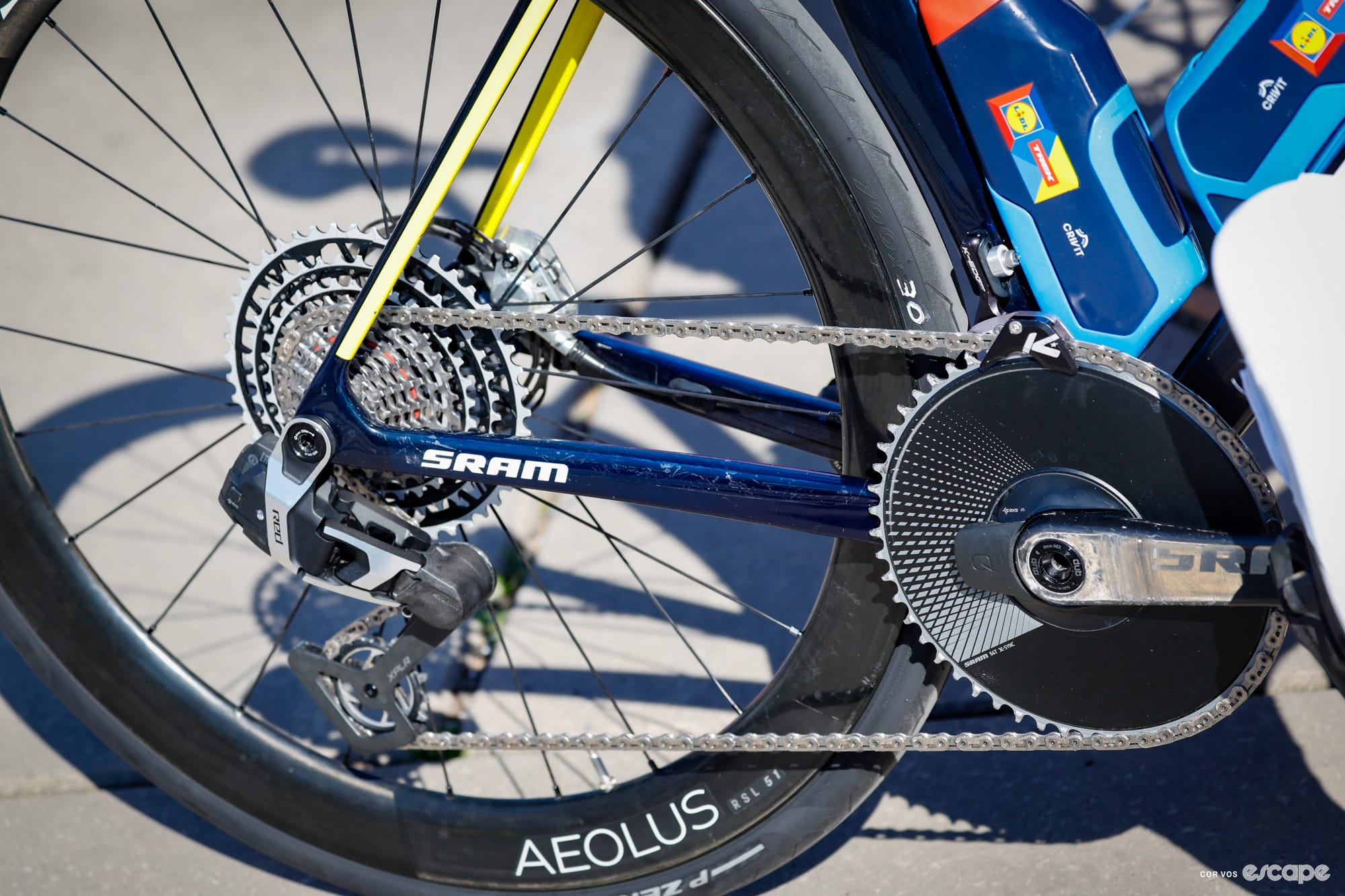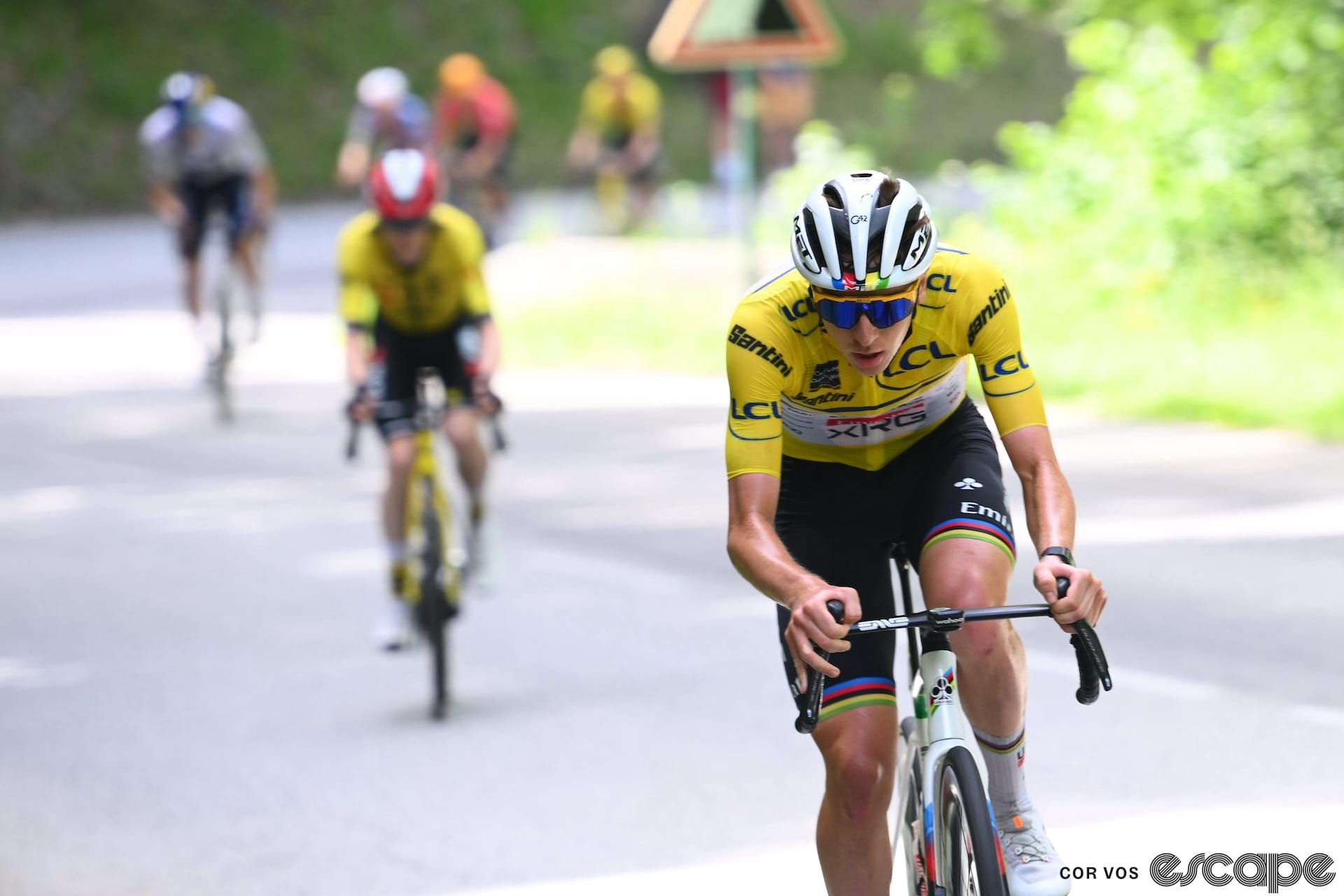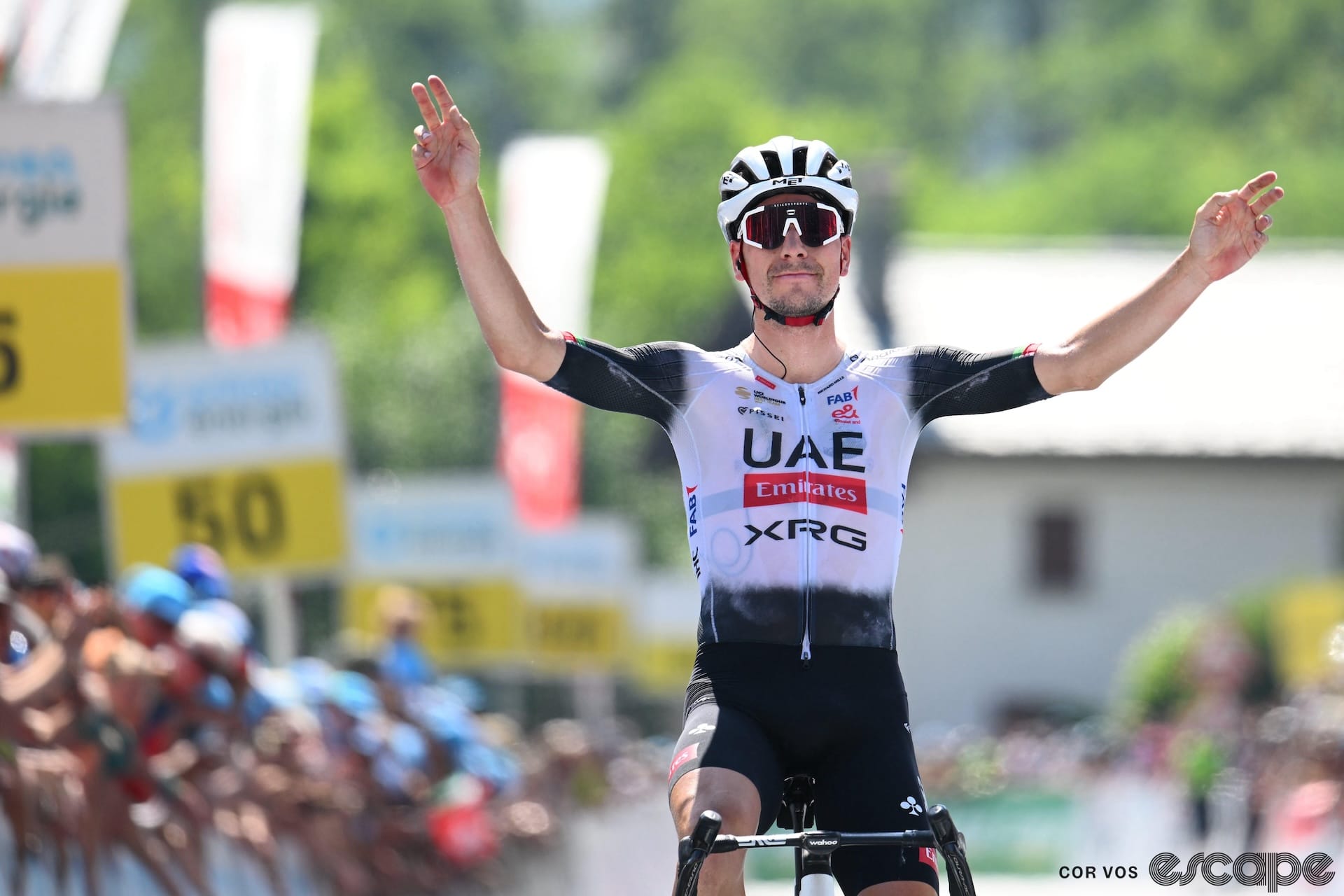Performance Process is an Escape Collective members podcast dedicated to going deep on the processes behind the best performances. You'll find the latest episode of the podcast in this newsletter; a fortnightly hub for everything new in the world of performance tech, gains. Sign up for the e-mail newsletter here:
For all the chat of Dan Bigham’s innovation in aero, engineering, and marginal gains, I put to you that it's his inability to stop that is his greatest asset. There are plenty of reasons Bigham shouldn't be a World, European, and Olympic champion in cycling. In this sport, not governed but dictated by tradition, he shouldn't have been a national record holder, never mind a World Hour Record holder. Cycling was a sport built on watts and a sport on an eat-sleep-repeat cycle of "this is the way it's always been done."
Bigham, who recently announced he is leaving the Ineos Grenadiers and will join up-and-coming powerhouse Red Bull-Bora-Hansgrohe as their in-house performance engineer, has a story that isn’t just about athletic prowess. It’s about his obsessive focus on solving the performance puzzle through reverse engineering and innovation. His refusal to accept conventional wisdom – whether through aerodynamics, crank lengths, or tyre testing – set him apart in a sport where "tradition" and intuition often trump experimentation and science. The fact that he carved a career out of questioning everything speaks to his unique ability to blend science and sport, ultimately disrupting the very institutions that had doubted him. As he steps away from professional riding and turns his full attention to Red Bull’s performance, the impact of his methodology on the future of cycling will be hard to ignore.
There aren't many opportunities in the traditional version of our sport for a not-so-young, British motorsport engineering student who only cycles to get to uni. There weren't many more for a triathlete intern working on optimising F1 wing mirrors. In fact, the gates of entry into the upper echelons of cycling are slammed shut to most riders not gifted with a phenomenally huge engine.
Most 20-something-year-olds would get to those gates and turn back, but not Bigham. He bypassed the gates, skipping straight to the end to reverse engineer the code to break a pathway for himself and a group of merry men that became the Huub-Wattbike track team. Hopefully, it's a path that is retained for generations to come.
To listen to the full Performance Process podcast with Bigham, just head to our members-only podcast page for access.
The results and knocks came thick and fast for Bigham and the Huub team: national titles and World Cup track wins – only for a change of rules to mean they could no longer compete. Domestic domination, but no chance of a national team call-up. Dan himself set a Bradley Wiggins-beating British Hour Record, on the same weekend Joss Lowden, his wife-to-be, broke the women's World Hour Record. In the same year, he was merely a member of the support staff for Team GB beating Denmark in the Tokyo Olympics.
For every blistering time and podium-topping result, there was ridicule and rejection. "That's the way it's always been done" and "we know what we are doing" was the response of national and WorldTour teams alike. There was a book along the way, Start at the End: How Reverse-Engineering Can Lead to Success, in which Bigham laid out his approach to performance, but still some of the brightest minds in the sport couldn't see what was in front of their own eyes. In their words, Bigham didn't have the power to be a world-class rider, and his athletic achievements only came because he was so aero, missing entirely the point that it's neither power nor aero that makes a rider fast, it's the combination of both, and many other things.
Somewhere along the way, someone at Ineos Grenadiers finally got it: if this aero guy is that fast with those watts, how fast could our power guy be if he was that aero? To answer that question they needed an experiment, and Bigham was both the researcher and the subject. The question he was charged with answering was: How far can you cycle in one hour with all the resources and technology we can make available to you, and how much further could Filippo Ganna then go with all the understanding you've gathered?
Bigham helped himself to a new World Hour Record before turning his attention to Ganna, who then cycled further than anyone ever had before under any ruleset.
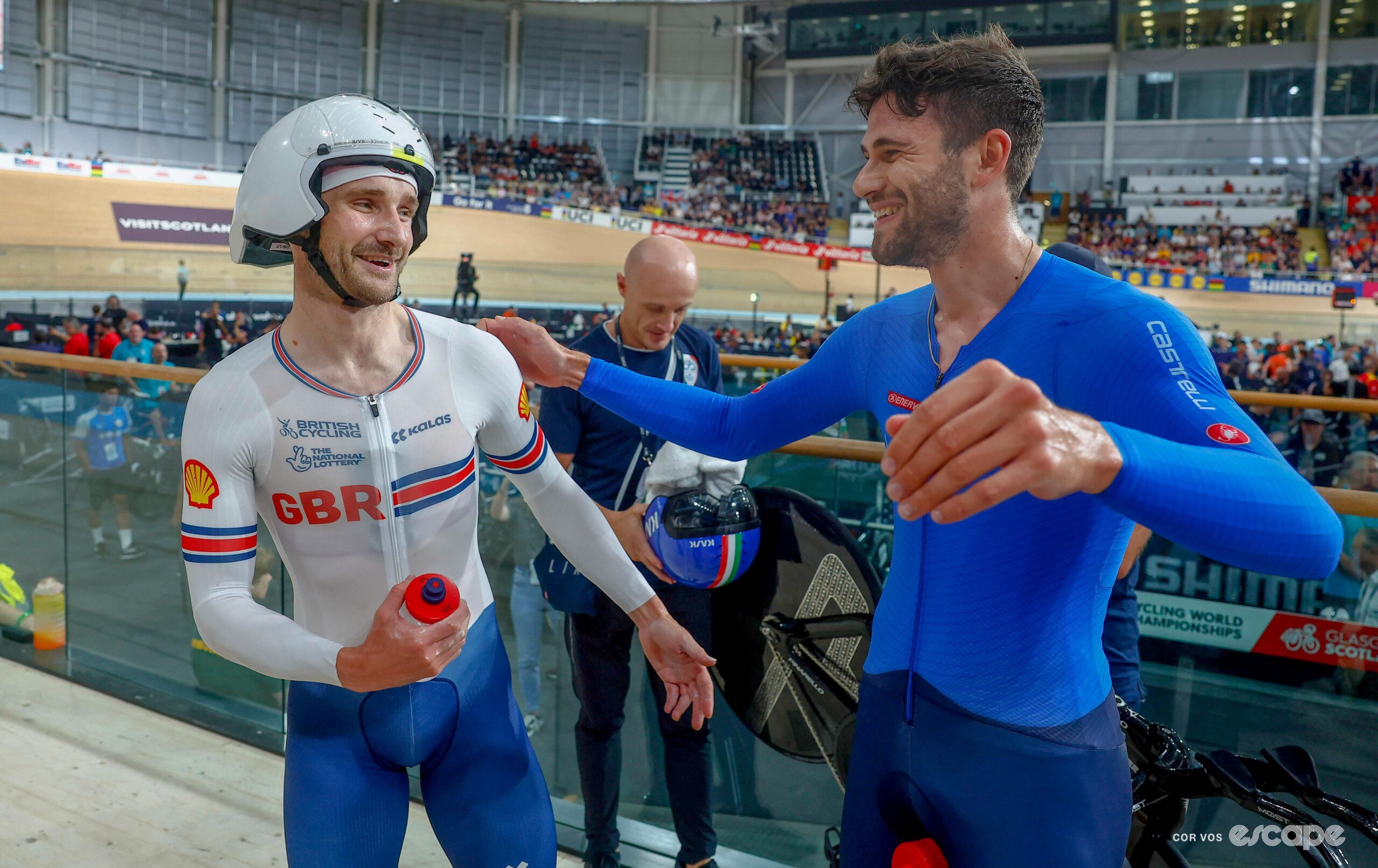
Bigham wasn't just playing in the big boy WorldTour club, he was beating them and improving them. His once-scorned "question everything, improve everything" approach that had made Team Sky's marginal gains approach look like level one of Duolingo was now the new modus operandi across all the big teams. He'd simultaneously founded Wattshop, his aero consultancy service and all-things-aero webstore, got married, had a kid, and finally, at 30 years of age, broke into the Team GB track squad for real, just in time for the leadup to the Paris Games.
A long-time fan of Bigham's "first principles" approach, it was around this time I started asking myself a question: "How the F*#k does he do that?"
Many of us lucky enough to have full-time jobs know they leave little time or energy for rigidly adhering to dedicated training plans. We find time because we love it, but things get more difficult when little ones come along. Consider now adding in all the travel of working for a WorldTour team, a business of your own on the side, moving to a foreign country, and not just trying to maintain your training but up to the Olympian level to earn a spot on the most successful Team Pursuit squad of the past two decades and a powerhouse Olympic cycling nation.
Consider all that, and you haven't yet covered everything Bigham did over the past couple of years preparing for Paris.
There were tyre testing trips on Continental's Contidrome. Testing sessions for this, spreadsheets for that, optimisation and R&D targets for this, that, and the other as he details in this week's Performance Process. His book is titled Start at the End and never is it more evident his starting point is everyone else's endpoint than when he details his process for determining his optimal crank length. Where many "try it and see," Bigham did five-hour rides on the indoor trainer that were closer to science experiments than training sessions, EMG analysis, ramp tests, blind testing, and gross efficiency testing with gas analysers all just to determine crank length. He's as relentless in questioning every answer to every performance question as he was in breaking through the barriers our sport once had. Altogether, it's an unfathomable routine and the only explanation I can provide is that he has found a way to engineer more hours into a single day.
Of course, Bigham isn't a one-man band. There's his wife Joss, then there are family back home in England mostly overseeing Wattshop day-to-day activities. The GB track team has all the backing of British Cycling, its partners, and the British Olympic Association. And in fact, part of the reason he is moving on from Ineos Grenadiers is that he can't get his teeth stuck into performance problem-solving as much as he would like. Nevertheless, it seems a pretty safe bet to assume Bigham was by far the busiest athlete to qualify for Paris.
Imagine then, all that effort and sacrifice, you've made it to Paris, and three days out you crash into another rider at 60 kph, catapulting yourself across the track, putting a question mark over your participation in the Games, never mind the ultimate success of your one and only chance at an Olympics. "Everything's within your control until it isn't," Bigham muses, highlighting the stark contrast between his methodical approach and the chaos of Olympic velodromes and split-second decisions. Worse still, imagine those split-second decisions see you questioning over and over for years to come if your injury cost not just you, but your teammates, what could be their only chance at Olympic gold.
"Bittersweet," Bigham says of silver. When it comes to the team pursuit, GB go for gold and so perhaps silver is bittersweet, but on the one hand, regardless of injury, GB were beaten by a World Record-breaking Australian team. And on the other, if there's one lasting memory for me of the Paris Games, it's the jubilation shown by winners of any medal, gold, silver, or bronze. So often in world-class sport, second and third are deemed as failure, but the Olympics are different. My wife never remembers Lizzie Deignan was a World Champion, but she never forgets Lizzie Deignan was a silver medalist in London 2012. As if preempting this thought, I introduced Dan onto the podcast as an Olympic medallist, forgetting to mention his status as a former Hour Record holder.
Perhaps mercifully for both, while Bigham had that three-day-out crash that he reckons hampered his performance and saw him miss the semifinal, Ethan Hayter had a last-lap accident that meant GB couldn't fight for gold all the way to the line. Which, if either, of those two incidents cost the team gold is a problem shared and so a problem halved. Both will no doubt run those incidents over and over in their minds for years to come, but ultimately, just as a race is never won in one thing alone, it's also never lost in one thing alone.
For Bigham, it's not having a redo that weighs the most. The next Olympics is four years away, and he will draw the curtain on his riding career at next month's World Track Championships. He "can't do another four years" of that relentless schedule.
I've spent a week since recording this podcast trying to comprehend how difficult that decision must be for Bigham. On the one hand, you could argue, and presumably, he has with himself, that he can't stop now; he's only just made it to the world stage after years of relentless struggle and with an Olympic medal to boot. But, with a family at home, he can't not stop. I wondered, and hoped, that all those medals, wins, and records were enough to dispel any lingering notion he had something to prove from those early years of rejection. Listening to him, it seems they have. He keeps the door open, but it does seem that while he may have started at the end in every goal along the way, the Olympics were the start of the end for that relentless refusal to stop.
So all this is to say: make sure you catch this Performance Process episode with Dan Bigham, linked above. It's not one to miss.
Did we do a good job with this story?

